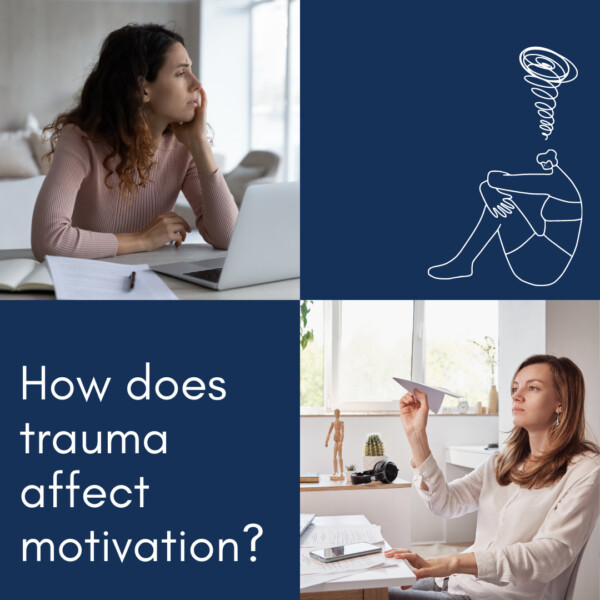Our understanding of motivation and motivation decision-making has long been based on an assumption. Many assume motivation is driven by task-related factors such as values, efficacy, and causality. However, in the presence of chronic or complex trauma, this misunderstanding must shift. Research in neuroscience has shown that trauma can have a profound effect on the brain, such as changes in motivation and behavior. Trauma symptoms such as hypervigilance, avoidance, and negative beliefs can all interfere with goal-directed behavior. As a result, it is essential to take into account the impact of trauma when trying to understand motivation. Only by doing so can we hope to effectively address the needs of traumatized individuals.
The Corrosive Trauma Learning History
When these negative beliefs are operating, they act as a lid on motivation, a barrier to transformation, reducing or restricting forward-moving growth.
Trauma, especially chronic or complex trauma, shatters the well-accepted understanding. In fact, motivation itself must shift in the presence of chronic or complex trauma. Motivation is inextricably linked to negative beliefs about oneself. These negative beliefs are installed by the corrosive trauma learning history (e.g., “I am unworthy”, “I am not safe”, “I am powerless”). When these negative beliefs are operating, they act as a lid on motivation, a barrier to transformation, reducing or restricting forward-moving growth. This is why people with chronic or complex trauma often seem unmotivated, often called lazy, or not serious about change.
These wonderful people that have struggled with a life of vulnerability, despair, and repeated failures have had their motivation inhibited by their negative beliefs. Often, they do not feel competent and lack the faith that any action they take will yield results. This leaves them with an inadequate expectancy about the future. In order to change these negative beliefs, and thus increase motivation, it will be a unique journey for each person desiring to reach past their vulnerability into a more optimal future.
Unique Individual Competencies & The Salutogenic Approach
When it comes to motivation, there is no one-size-fits-all approach. What works for one person may not work for another. This is because we are all unique individuals with our own individual physiology and neurobiology developed in response to our own learning and experience history. To truly be effective in motivating others, we need to have a deep understanding of neuroscience and how to work with it. This requires developing attunement to others and an understanding of how human physiology is directly impacting emotions, thinking, and behavior.
The preparation, learning, and understanding of how to apply the concepts that will aid most, are not cookie-cutter, workbooks, or worksheets. It requires our ability to understand how each person operates and to discover what motivations would work best to help with growth, change, and transformation. The Salutogenic approach provides a framework for individualizing, connecting, and creating a true therapeutic relationship with clients. Salutogenic practice looks for each unique individual’s competencies, and how to apply those competencies to support the change process.
@aztrauma Motivating Traumatized Clients #traumainformed #salutogenic #trauma #motivation ♬ motivational corporate background (5min, no drums, calm, slideshow, piano) – LeChuckz
- Learn more about Motivating Traumatized Clients & Students by attending our upcoming class of the same name, taught by Dr. Robert Rhoton.

Written by Robert Rhoton Psy D., LPC, D.A.A.E.T.S.
Dr. Robert Rhoton, CEO of Arizona Trauma Institute and President at the Trauma Institute International possesses a rich history of experience in the mental health field.



